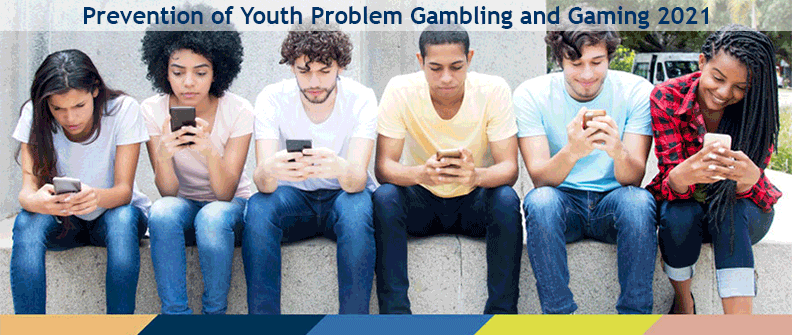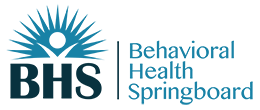
Prevention of Youth Problem Gambling and Gaming
The United States is in the largest expansion of legalized gambling in its history. Youth gamble at young ages with parents and friends with little to no awareness that gambling can even become an addiction. With legalization of sports betting in many states across the country and the converging of the gaming and gambling industries, it is more important than ever to address the growing public health concern of youth problem gambling. Participants will learn about youth gambling activities, prevalence rates of youth problem gambling, risk factors and signs and symptoms for youth developing a problem with gambling, and protective factors that combat the development of problem gambling. In addition, participants will learn about evidence-based prevention efforts to combat youth problem gambling. Participants will also take a self-guided tour of the curriculum online.
Stacked Deck is the only evidence-based program that is effective in preventing and reducing the risk of problem gambling among teens. Offered in six session, the program is aimed at changing gambling-related attitudes, knowledge, beliefs, and practices. It also seeks to improve decision-making and problem-solving. The Stacked Deck curriculum is interactive, including activities such as role-playing, and discussion of case scenarios involving gambling and substance abuse.
Grants up to $5,000 are available for middle schools, high schools, and at-risk community-based programs to implement Stacked Deck. Educators are trained, provided technical support, and given all materials needed to implement the program. Educators will also be trained on Adverse Childhood Experiences (ACEs) and will attend a virtual trauma-informed and resiliency-focused skills lab. Research indicates that coupling problem-gambling education in schools with resiliency-focused programs will increase the effectiveness of prevention efforts.
Times:
Training: 9 am – 2 pm
Lunch break: 11:15 am – 11:45 am
Timeframe is the same for all days
Target audience:
An Introduction to Youth Problem Gambling is targeted to school administrators, teachers, coaches, athletic directors, school counselors, school therapists, adolescent-focused nonprofit administrators and staff, child mental health therapists, and school social workers are encouraged to attend.
The Adverse Childhood Experiences and Resilience-Focused Skills Lab is targeted for all new and current Stacked Deck grantees. Grantees are encouraged to attend.
Registration:
Registration is free, but participants must pre-register for each training. We will confirm your registration by email.
ADA Statement:
If you require any of the auxiliary aids or services identified in the Americans with Disabilities Act in order to participate in this program, please call us at (919) 843-6083 no later than ten business days before the program.
Inclement Weather Policy:
Any announcements regarding changes to the schedule due to inclement weather will be posted on http://bhs.unc.edu. Registered participants will also be notified by email.
Confirmation Notices and Certificates of Completion:
Successful completion includes being logged in and virtually participating for the entire training. Within 7 days of the conclusion of the event, you will receive an email notifying you that the evaluations and certificates are ready. The email will include a link to https://bhs.unc.edu where you can login using the username and password you chose at registration. Once you have logged in, you will see the training titles listed under "My Courses" on the left side. After clicking on the link, you will be taken to another page where you can click the link to the event evaluation. Once you have completed and submitted your evaluation, you can click on the link to access the Certificate of Completion. Your Certificate will be available to you as a PDF document for you to save or print.
Presenter Information: See the "Presenters" tab above.
7/27/2021 Day One: An Introduction to Youth Problem Gambling
 Participants will learn about youth gambling activities, prevalence rates of youth problem gambling, risk factors and signs and symptoms for youth developing a problem with gambling, and protective factors that can help prevent the development of problem gambling.
Participants will learn about youth gambling activities, prevalence rates of youth problem gambling, risk factors and signs and symptoms for youth developing a problem with gambling, and protective factors that can help prevent the development of problem gambling.
Learning Objectives - Participants will be able to:
- Describe youth gambling activities
- Describe the significance of the youth problem gambling prevalence rates
- Explain how risk factors and protective factors play a role in youth developing or preventing youth problem gambling.
- Identify behaviors of youth experiencing problem gambling.
- Determine how to implement evidence-based prevention efforts to combat youth problem gambling.
Agenda:
9:00 am – 10:00 am – NC Problem Gambling Program Services
10:00 am – 10:15 am break
10:15 am – 11:15 am – NC Problem Gambling Program Services continued
11:15 am – 11:45 am – Lunch
11:45 am– 12:45 pm – Youth Problem Gambling in NC
12:45 pm – 1:00 pm break
1:00 pm – 2:00 pm – Youth Problem Gambling in NC continued
Contact Hrs: 4:00
7/28/2021 Day Two: Stacked Deck
Participants will learn how to apply for the NCPGP Stacked Deck mini-grant and how to facilitate the curriculum to fidelity by being guided through all six lessons and activities. In addition, the participants will learn how to utilize the Stacked Deck guidebook and PowerPoint presentation to facilitate the curriculum to students. The curriculum can be offered to students in three different ways. The curriculum can be offered in the classroom, a virtual learning environment (provided by your organization or school), or in a self-guided learning platform for students to access independently or as a cohort of students guided by a facilitator (provided by our program). Each of these options will require the facilitator to meet in the classroom or in a virtual environment with students to process the curriculum material.
Learning Objectives - Participants will be able to:
- Recognize modern commercial gambling that includes stacked odds that create the “house edge.”
- Identify gambling as an activity that can become addictive, and recognizable causes, risk factors, and signs of problem gambling.
- Describe the two factors that contribute to problem gambling; the lack of knowledge about gambling and misunderstanding about how gambling actually works.
- Identify good decision-making and problem solving as essential skills to practice.
- Define the ways to overcome barriers to good decision-making and problem-solving.
- Describe how to facilitate the Stacked Deck curriculum.
- Apply for the Stacked Deck grant.
- Explain how to deliver the curriculum in a virtual environment.
Agenda:
9:00 am – 10:00 am - Lesson One Gambling History and The House Edge and Two Problem Gambling
10:00 am – 10:15 am break
10:15 am– 11:15 am - Lesson Two Problem Gambling Continued and Three Gambling Fallacies
11:15 am – 11:45 am lunch
11:45 am – 12:45 pm - Lesson Four Smart Gambling and Five Barriers to Good Decision Making
12:45 pm – 1:00 pm break
1:00 pm – 2: 00 pm - Lesson Six the Stacked Deck Quiz Game and how to Apply for the Grant and Facilitation Skills
Contact Hrs: 4:00
7/29/2021 Day Three: Adverse Childhood Experiences and Resilience-Focused Skills Lab
 The Adverse Childhood Experiences Study enlightened the worlds of health care, human services and education regarding the relationship between childhood trauma and social, behavioral, emotional and physical health outcomes across the lifespan. Children who are immersed in toxicity at home struggle to perform well in school and most other aspects of their lives. A Washington State study showed that students with three or more ACEs were: two and a half times more likely to fail a grade, score lower on standardized tests, have language difficulties, are suspended or expelled more often, are designated to special education more frequently and have poorer health, than those students who have a score of zero.
The Adverse Childhood Experiences Study enlightened the worlds of health care, human services and education regarding the relationship between childhood trauma and social, behavioral, emotional and physical health outcomes across the lifespan. Children who are immersed in toxicity at home struggle to perform well in school and most other aspects of their lives. A Washington State study showed that students with three or more ACEs were: two and a half times more likely to fail a grade, score lower on standardized tests, have language difficulties, are suspended or expelled more often, are designated to special education more frequently and have poorer health, than those students who have a score of zero.
As educators become more aware of these effects, the question becomes, what can we do about it. This session will discuss the outcomes of the ACE Study and will offer some specific resiliency tools that can be used by the teacher, and
other staff and administrators, to mitigate the stress of managing so many traumatized children. It will also focus on how the tools can be used by the children themselves, to help settle their nervous systems and bring their brains and bodies into a state where they are able to have more control over themselves and can learn and participate in the classroom in a healthy way.
Learning Objectives: Participants will be able to:
- Describe the Adverse Childhood Experiences Study
- Explain the relationship between ACEs and trauma and addictions such as problem gambling
- Apply Understanding of stress and relaxation response
- Identify basic skills to turn off stress response and turn on relaxation response
- Create “everyday resiliency practice” of applying tools
Agenda:
9:00 am – 9:45 am – Introductions of participants and to model
9:45 am – 11:15 am – Adverse Childhood Experiences Study
11:15 am – 11:45 am – Lunch
11:45 am – 2:00 pm – Reconnect for Resiliency Curriculum Tools and Practice
Contact Hrs: 4:00
Prevention of Youth Problem Gambling and Gaming
The University of North Carolina at Chapel Hill School of Social Work has been approved by NBCC as an Approved Continuing Education Provider, ACEP No. 6642. Programs that do not qualify for NBCC credit are clearly identified. The University of North Carolina at Chapel Hill School of Social Work is solely responsible for all aspects of the programs. Each Successfully completed webinar qualifies for 4 contact hours.
Each course has been submitted the North Carolina Addictions Specialist Professional Practice Board for 4 SS contact hours.
The University of North Carolina at Chapel Hill School of Social Work is an Approved Provider by the National Council on Problem Gambling, NCPG CEU Approved Provider Number 08/801. 4 contact hours.
 Alison Drain, MSW, MPA
Alison Drain, MSW, MPA
NC Problem Gambling Program Prevention Coordinator
Morneau Shepell
MH, DD, SAS NC Department of Health and Human Services
Alison Drain has over 20 years of experience working with government and nonprofit agencies at the local, state, national, and international levels managing prevention, treatment and research efforts utilizing a public health lens. She is the North Carolina Problem Gambling Program Prevention and Treatment Specialist with Morneau Shepell. She manages over 60 statewide prevention grants, provides trainings on problem gambling prevention and outreach, and trains and provides technical support to school staff and prevention coordinators on, Stacked Deck, an evidence-based prevention curriculum. Alison also leads the first adolescent treatment program for problem gambling in North Carolina by coordinating cutting-edge clinical trainings, outreach efforts, and managing the registry of providers. Alison holds a Master’s Degree in Social Work and a Master’s Degree in Public Administrator from West Virginia University.
 Mary Lynn Barrett, LCSW, MPH
Mary Lynn Barrett, LCSW, MPH
Mary Lynn Barrett, LCSW, MPH, has dual master’s degrees in social work and public health from the University of Washington. She is the former Director of Behavioral Medicine in the Family Practice Residency Program at MAHEC’s Family Health Centers. Her current position as faculty in the program involves both teaching physicians to manage the mental and behavioral health aspects of primary care and treating patients who experience these challenges to their overall well-being.
Mary Lynn is part of the leadership team of resiliency trainers who started the local non-profit agency, Resources for Resiliency, and the curriculum Reconnect for Resilience. She has taught about resiliency for many years locally in North Carolina, nationally, and internationally, having trained people in resiliency skills in Honduras, Rwanda and Tanzania.
